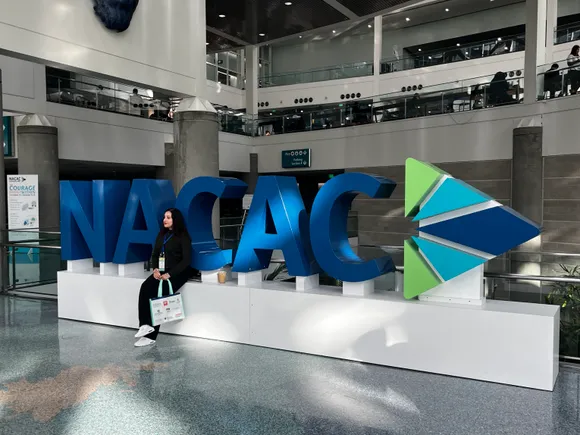For most American workers today, employment news is largely positive. Average hourly wages have grown faster than inflation for the past year. Although unemployment continues to inch up, it remains at near-record historic lows. In many respects, getting a good job with good pay seems easier than ever.
For employers, however, this robust American economy has generated tight labor markets, an ongoing shortage of skilled workers and a constant scramble for talent to help their businesses grow. Because the nation’s colleges and universities aren’t producing graduates nearly fast enough to meet demand, companies and state governments are reassessing the role of college degrees in hiring decisions and are increasingly turning to skills-based hiring to meet their talent needs.
The growing popularity of the skills-first moment marks a crucial and welcome turning point in our nation’s workplace history. For too long, degree requirements have served as roadblocks for millions of workers who seek better jobs and better pay. Earl Buford
Earl Buford
But this shift to skills-based hiring is not without risks. While this approach is opening more pathways to an increasing number of entry-level roles at companies large and small, continued degree requirements for upper-level positions close off opportunities for career advancement.
Without college degrees or credentials, these workers remain confined to these entry-level jobs. While the debate around skills-based hiring and the value of college degrees has devolved into a zero-sum game, there needs to be an understanding that college credentials and practical skills should be mutually reinforcing rather than mutually exclusive.
Instead of viewing skills-based hiring and degree attainment as being at odds, savvy talent development leaders are now building extended pathways to ensure that employees who lack a four-year college degree can continue to advance in their careers well after they are hired.
In today’s employment climate, there is growing momentum for skills-based hiring — that is, hiring individuals based on the skills and abilities they possess, not the degrees they have earned. Over the past two years, at least 20 states have eliminated degree requirements for significant numbers of public-sector jobs or are exploring this practice.
Some of the country’s largest companies, including tech giants like Apple and IBM, are challenging the traditional reliance on academic credentials as a proxy for skills and qualifications. LinkedIn reported recently that 19% of the U.S. job postings on its platform in 2022 did not require college degrees, up from 15% a year earlier.
Though most employers have not yet embraced skills-based hiring in meaningful ways, a new report from Burning Glass Institute found that 37% of companies — from giants such as Walmart, General Motors and ExxonMobil to a host of smaller firms — are hiring on average 18% more non-degreed workers into roles where they dropped degree requirements.
Companies that have adopted skills-based hiring strategies gain a significant numerical advantage in the employment marketplace. More than 60% of working-age Americans do not have a bachelor’s degree. Half of the American workforce — roughly 70 million people — are 25 and older and lack a college degree, but have gained skills and knowledge through alternate routes, such as community college, apprenticeships, military service or on-the-job training and experience.
According to LinkedIn, companies that use a skills-first approach to hiring can add up to 20 times more workers to their talent pools. This approach also significantly increases opportunities for women and younger workers, especially Generation Z.
Though the financial services industry traditionally has required employees to have college degrees, there’s room for skills-first hiring. In 2022, 75% of JP Morgan Chase’s U.S. postings for experienced hires did not require a college degree. To prepare emerging talent for entry-level roles in business operations, financial services and technology, the company has partnered with nonprofits and postsecondary institutions to create apprenticeship, internships and skills training programs.
This approach allows youth and adults to develop technical skills for specific roles and durable skills that will serve them throughout their careers. Individuals are paid during these work-based learning experiences. In some cases, they receive college credit or nationally recognized industry certifications.
A growing number of organizations are building extended pathways into good careers in the banking sector in five cities across the Southeast. The Build Better Careers initiative, in partnership with the Truist Foundation, is connecting adult learners from underserved communities with jobs that pay family-sustaining wages and provide long-term career opportunities.
This accelerated training program is tapping into the collective strength of local colleges and universities, nonprofits, service providers and workforce development boards to prepare these individuals for entry-level banking roles.
But the work doesn’t stop there. The next iteration of this initiative will support individuals who want to go on to earn college degrees and financial services licenses that ultimately can increase their salaries and advance them into management and leadership positions.
Equipping individuals with job-ready skills can help them get their foot in the door of industries that have traditionally been closed to those without college degrees. But helping employees advance into more senior roles requires companies to collaborate with education and nonprofit partners to create lifelong learning programs that stress continuous professional growth.
Companies can unlock the full potential of their workforce by doubling down on investments in education and training for employees who have been hired from non-traditional educational backgrounds.
Skills-based hiring is not — and should not be — an alternative recruitment strategy. Instead, it should serve as an essential component of a broader, coordinated, and interconnected strategy for cultivating a stronger and more talented workforce.
Earl Buford is President of the Council for Adult and Experiential Learning
#SkillsBased #Hiring #Degree #Completion #Mutually #Exclusive










